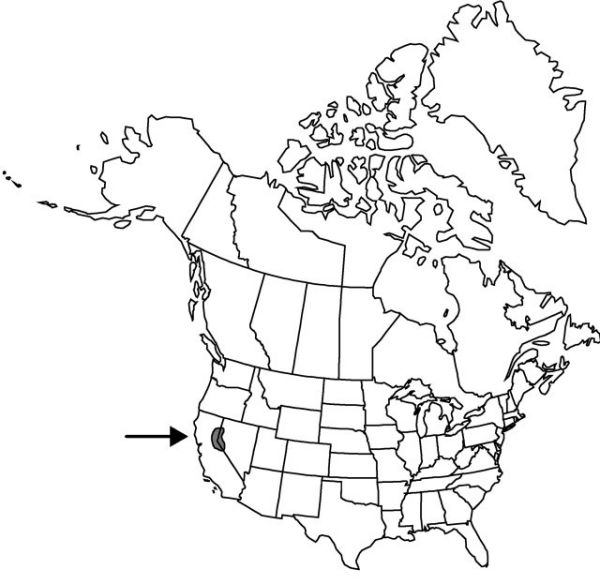Muilla transmontana
Pittonia 1: 73. 1887.
Endemic
Synonyms: Bloomeria transmontana (Greene) J. F. Macbride
Revision as of 21:16, 5 November 2020 by imported>Volume Importer
Plants 1.5–5 dm; corms 1–2.5(–3) cm in diam. Leaves 3–5, 5–30 × 0.05–0.4 cm. Scape 8–50 cm. Flowers 12–30; tepals white, often tinged with lilac, mostly lanceolate; perianth tube 1–1.5 mm, lobes 5–8 × 1.5–2 mm; stamens 4–6 mm; filaments erect, conspicuously dilated basally and connate to form nectariferous cup; anthers yellow, 1–1.5 mm; pedicel 1–2.5 cm. Capsules 8–10 mm. Seeds 4–5 mm. 2n = 20.
Phenology: Flowering spring and early summer (May–Jul).
Habitat: Desert scrub, coniferous woodlands
Elevation: 1400–2500 m
Discussion
Muilla transmontana is found in coniferous forests in mountains of northern California and northwestern Nevada, and infrequently on sagebrush flats of lower elevations. The filaments are dilated and connate at the base to form a nectariferous cup similar to that seen in Bloomeria crocea.
Selected References
None.
Lower Taxa
None.
